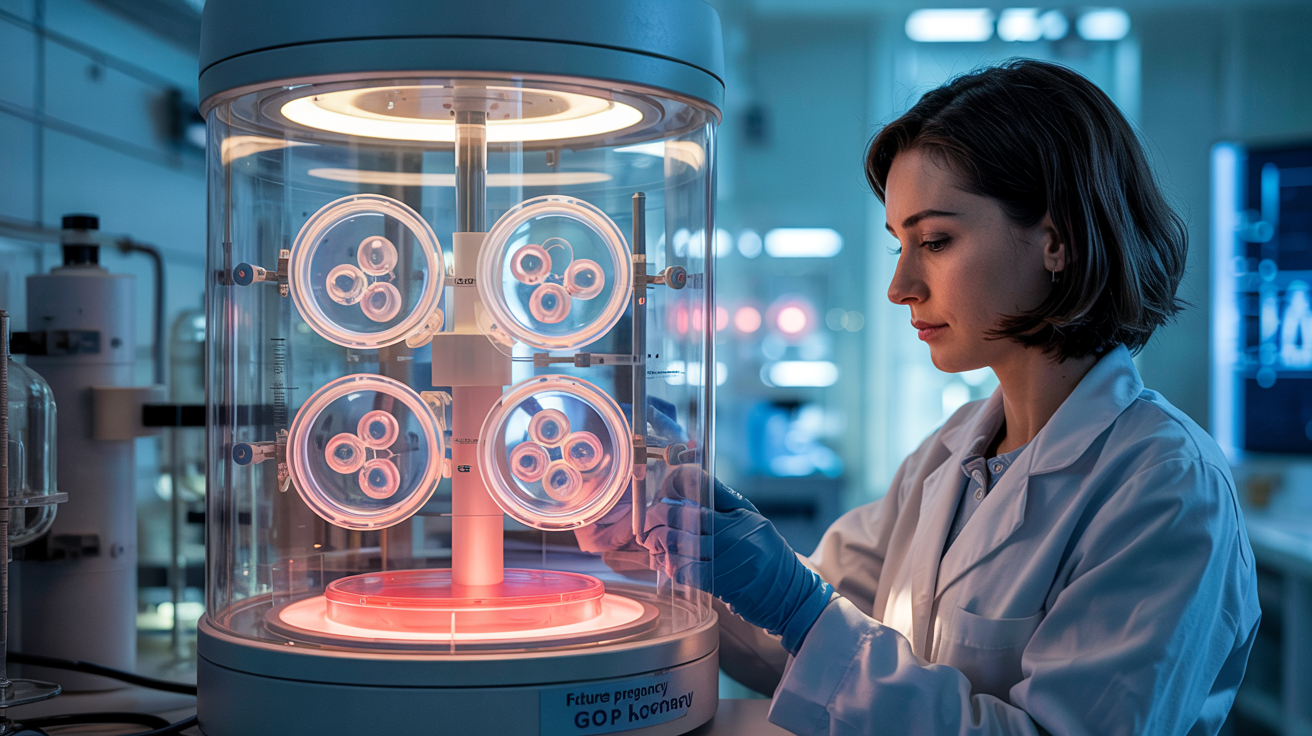Preserving young egg cells gives women more control over fertility. Modern medicine now makes it possible to extend your biological clock. If you want children later in life, storing young eggs is a smart choice.
This article explains how to preserve young egg cells, the process, its benefits, and tips to increase success.
Why Preserve Young Egg Cells
Young egg cells are healthier. They have fewer genetic issues. They increase the chance of a successful pregnancy later. Egg quality declines with age. Preserving them young ensures better outcomes in the future.
Women preserve eggs for many reasons:
-
Career plans
-
Health concerns
-
Not ready for parenthood
-
Waiting for the right partner
-
Undergoing cancer treatment
No matter the reason, freezing young eggs is a wise investment in reproductive health.
When Is the Best Time to Preserve Eggs
The earlier, the better. Women are born with all their egg cells. With time, quantity and quality decrease.
Best age:
-
Between 20 and 30: Highest egg quality
-
Between 31 and 35: Still viable, but less optimal
-
After 35: Quality drops faster, fewer eggs can be retrieved
Freezing young ensures you preserve your best eggs.
Step-by-Step Egg Freezing Process
The medical term is oocyte cryopreservation. Let’s walk through the steps.
Initial Consultation
First, visit a fertility clinic. The doctor will assess your health and fertility. They’ll perform blood tests and an ultrasound.
Common tests include:
-
AMH (Anti-Müllerian Hormone) – measures egg reserve
-
FSH and LH – check hormone levels
-
AFC (Antral Follicle Count) – shows how many eggs may be retrieved
After review, the doctor will plan your egg preservation cycle.
Hormone Stimulation
Doctors stimulate your ovaries with hormones. This encourages the growth of multiple eggs.
You’ll take hormone injections daily for 8–14 days. During this time, the clinic will monitor your progress.
Ultrasounds and blood tests ensure your body responds well. When your eggs reach maturity, you’ll receive a trigger shot. This prepares your eggs for retrieval.
Egg Retrieval
Egg retrieval is a minor procedure. You’ll receive mild anesthesia.
The doctor uses a thin needle to collect eggs from your ovaries. The process takes about 20–30 minutes.
You can usually go home the same day. Most women feel mild cramping afterward.
Egg Freezing
The clinic freezes the mature eggs using a process called vitrification. This method prevents ice crystals and keeps the eggs viable.
Frozen eggs are stored in liquid nitrogen tanks. They can stay frozen for 10–15 years or more without damage.
You can use them whenever you’re ready to get pregnant.
How Many Eggs Should You Freeze
It depends on your age and future plans.
-
Age 20–30: Freeze 10–15 eggs for one future pregnancy
-
Age 31–35: Freeze 15–20 eggs
-
Age 36+: Freeze 20 or more if possible
The more eggs you freeze, the better your chances later.
Cost of Egg Preservation
Egg freezing is not cheap. Costs vary by country and clinic.
Typical expenses include:
-
Initial consultation: $200–$500
-
Hormone medication: $2,000–$5,000
-
Egg retrieval and freezing: $5,000–$10,000
-
Annual storage: $500–$1,000 per year
Some employers and insurance plans cover egg preservation. Always check your options.
How Long Can Eggs Stay Frozen
Studies show frozen eggs stay viable for 10–15 years or more. The freezing method protects the egg structure. Pregnancy success depends more on the egg’s age at freezing than storage time.
Using Frozen Eggs Later
When ready, you can use your eggs through IVF (In Vitro Fertilization).
Steps include:
-
Thaw frozen eggs
-
Fertilize them with sperm (partner’s or donor’s)
-
Grow embryos for a few days
-
Transfer the healthiest embryo to the uterus
You’ll take medications to prepare your uterus for pregnancy. If successful, the embryo implants and grows like any natural pregnancy.
Success Rates with Frozen Eggs
Success depends on your age at freezing and the number of eggs.
Pregnancy rates (average):
-
Age 25–30: 50–60% success per 10–15 eggs
-
Age 31–35: 35–50% success
-
Age 36–40: 20–35% success
-
Over 40: Lower success, even with many eggs
Freezing eggs earlier boosts your chances of a healthy pregnancy later.
Natural Ways to Improve Egg Health Before Freezing
Before freezing, focus on health. Healthy eggs improve outcomes.
Follow these tips:
Eat a Balanced Diet
Eat foods rich in:
-
Antioxidants (berries, leafy greens)
-
Omega-3 fatty acids (salmon, walnuts)
-
Protein (eggs, lentils)
-
Folic acid (broccoli, avocados)
Avoid processed foods and sugar.
Stay Active
Exercise improves circulation and hormone balance. Aim for 30 minutes of moderate movement daily. Walking, yoga, and swimming work well.
Quit Smoking and Limit Alcohol
Smoking harms egg quality. Alcohol affects hormone levels. Quit both before your cycle.
Reduce Stress
High stress lowers fertility. Practice meditation, journaling, or light workouts. Good sleep also supports hormone health.
Maintain a Healthy Weight
Being underweight or overweight affects ovulation. Aim for a BMI between 18.5 and 24.9. Ask your doctor if you’re unsure.
Risks and Side Effects of Egg Freezing
Egg freezing is generally safe. But like any medical procedure, it has risks.
Possible side effects:
-
Bloating
-
Cramping
-
Mood swings from hormone meds
-
Rarely, ovarian hyperstimulation syndrome (OHSS)
Talk to your doctor about your personal risks.
Emotional Side of Egg Freezing
Egg freezing offers peace of mind, but it can be emotional. Some women feel pressure. Others feel empowered.
Support helps. Talk to a fertility counselor if you feel overwhelmed. Join online communities to connect with others.
Common Myths About Egg Freezing
Let’s bust a few myths:
Myth 1: Frozen eggs guarantee pregnancy.
Truth: They improve chances, but don’t guarantee results.
Myth 2: You can freeze eggs anytime.
Truth: Earlier is better. Egg quality drops with age.
Myth 3: The procedure is dangerous.
Truth: It’s low-risk when done by professionals.
Myth 4: You must use all the eggs.
Truth: You decide when and how to use them.
Final Thoughts
Freezing young egg cells helps protect your future fertility. It gives you more options and flexibility. Start early. Take care of your body. Work with a trusted fertility clinic.
If you’re considering egg freezing, book a consultation. Ask questions. Know your options. Your future self will thank you.

